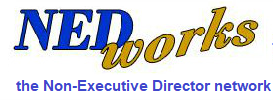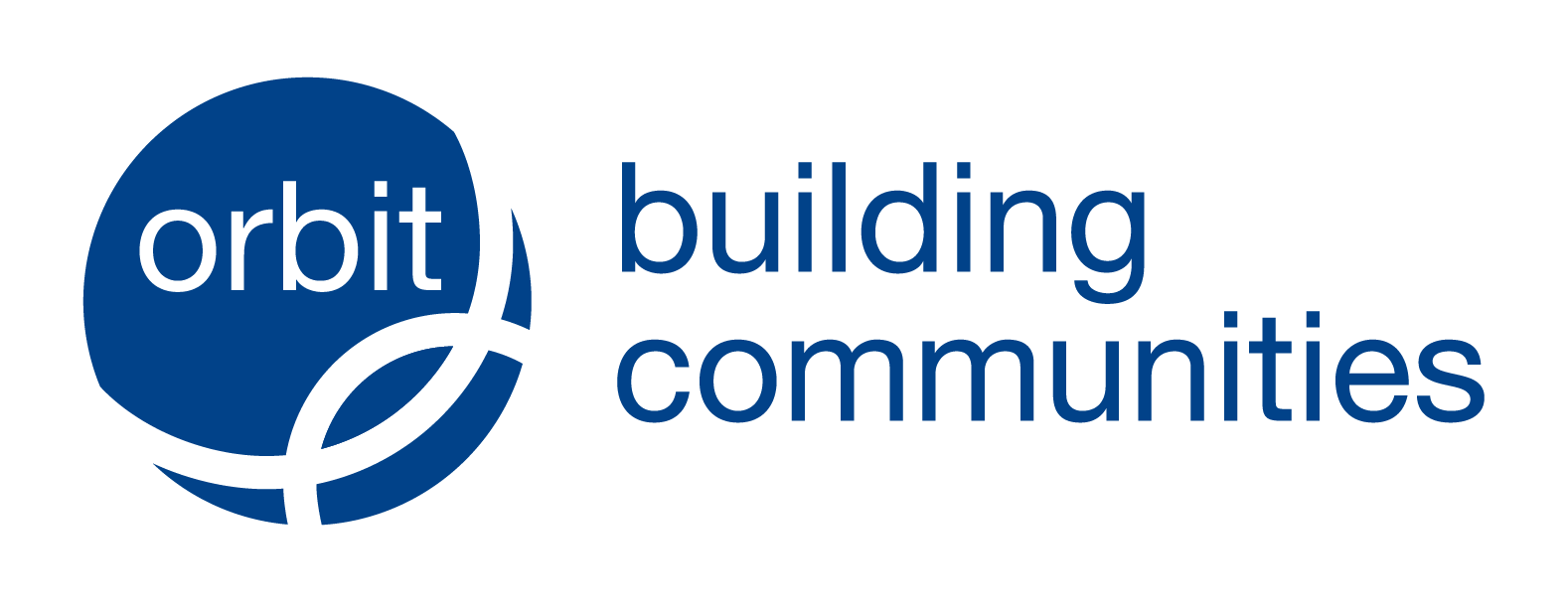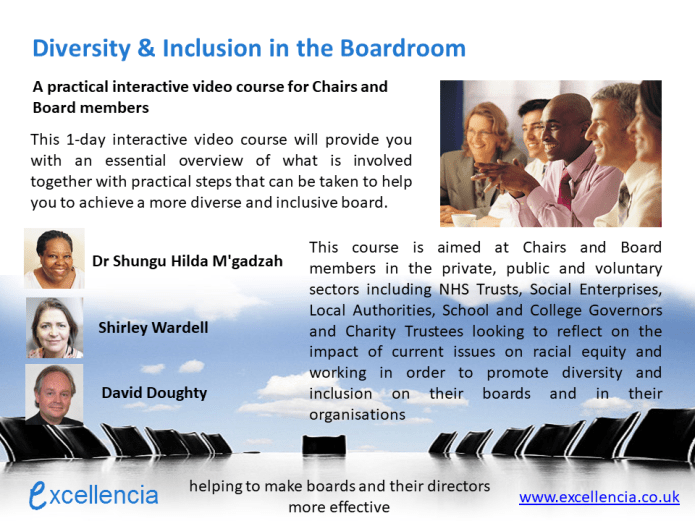Owning up to our Negative Automatic Thoughts: Are we becoming tired and numb to the messages around diversity equity and inclusion?
Sometimes it seems like some individuals and organisations have switched off from messages on racial justice and racial equity. However, the challenges facing us are no longer just about diversity, equality and inclusion, they are much greater than this. Psychologists recognise that if you experience something enough times you can become numb and supress your feelings and responses.
I believe this also applies to work in the area of diversity equity and inclusion. When we feel like we are being bombarded with information on the lack of racial tolerance and differences and being told that we have to change both at an individual and organisational level, there is a danger we can stop responding to these messages. Indeed we can become numb to the suffering of those who are different and to the efforts being made to promote change in this area. Our brains can filter out the information and we can switch off from this. But at what costs? Events in the USA warn us of the dangers of racism and intolerance of differences and what happens when our sense of privilege and entitlement is left unchecked.
Empathy and compassion and fearing for the lives of others.
I woke yesterday morning to the news of the death of Police Officer Sicknick. I like many others had watched officers battling to maintain control of Capitol Hill against a mob who had invaded the building demanding that the USA election outcome be overturned. One particular video which caught my attention was of a black police officer trying to hold off the mob of protesters terrified for his life.
As I watched this black officer running away from the mob and then at times standing his ground and then having no option but to flee as he was outnumbered, my heart was in my mouth and I empathised for this black man and wondered why he was on his own. Where were his fellow officers? How must he be feeling in that moment?
As a black woman it was not difficult for me to empathise with him and to understand the fear and terror he must have been feeling as he was standing face-to-face with this mob who were most likely right wing extremists and intolerant of racial differences.
It reminded me of the film Roots which I had watched when I was very young which still gives me nightmares to this day when I remember scenes of black people being isolated, trapped and lynched. We talk about post-traumatic stress disorder and psychological trauma but no one can begin to understand the trauma that these two policemen would have suffered in those moments. Black or white they were Officers doing their job and being attacked in the process.
An attack on democratic values and way of life?
Watching CNN following the riots and attacks on Capitol Hill there was a discussion on how worried we should be and someone reflected that what’s at stake is our democratic way of life and our liberal values. They talked of the dangers posed by the right wing extremists who having defined the world in a certain way are outraged that people do not agree with their definitions.
“They want to deny everyone else their rights and those at the most risk are the marginalised groups or ethnic minorities.”
If we needed further proof, the work in the area of anti- racism has never been more urgent. Racism and intolerance impact on society; fear, anger and blame feed the monster. Diversity and Inclusion does not just relate to organisations and boards it affects us all and we need to realise what the risks are if we continue to dismiss the need for change in this area as not applying to us.
When we allow ourselves to be stuck in caves of privilege, safe from the injustice which affects marginalised groups we convince ourselves that Diversity and Inclusion is not our business. However if we do this long enough the damaging impacts are clear to see as we nurture and reinforce messages of superiority and entitlement. We nurture and reinforce messages of intolerance and believe the conspiracy theories we are told. The impact of these repeated messages affects us all (not just those who believe them) as we saw in the Capitol Hill riots.
Some will argue this was in America, it cannot happen here. However the truth is it can happen anywhere. Wherever senses of privilege and entitlement are left unchecked and where there is intolerance of difference and an eagerness to blame those who are different such as ethnic minorities.
Why our focus needs to be on more than just about diversity, equity and inclusion.
Yesterday I met with David Doughty and Shirley Wardell to plan the diversity and inclusion in the boardroom course which we are holding later this month. We had a long discussion around what makes an effective board. We explored the areas we hope to cover on the training programme including concepts such as creating a safe space, building bridges of empathy, coming out of caves of privilege and promoting diversity of thought.
Concerns have been raised around unconscious bias training and whether this really has an impact on changing beliefs and behaviours. Some MPs have argued against such training, protesting against being told what to think. I recognise that some people are numb to anti-racism training and that some consider training not to be the solution in promoting change in boardroom behaviours.
It became clear to me during our planning that after months of conversations around racial injustice there is a real danger the course can fail to catch people’s attention and its messages lost. It’s therefore important to really highlight why diversity, equality and inclusion is such a key focus which we all need to make our business and not turn away from.
Why should Board members make this course their business?
So let me take time to explain why this course is critical to the work that Boards need to start doing in promoting greater inclusivity. Whilst the focus of the training program is on diversity and inclusion in the boardroom what we are going to be covering is much more than this.
It offers board members the first steps in exploring the function of their board and in evaluating where they are in their efforts to foster change and promote greater inclusivity. However more than this, it provides support and challenge in exploring Board values, beliefs and behaviours in relation to racial differences.
We all know that racism is really about power and that if true change is to occur it needs to be at the structural and institutional levels. This is why working with Board members is critical to this work.
In the UK, the Charity commission has recently published the updated Charity Governance Code which includes revised recommendations on Equality Diversity & Inclusion (EDI) and Ethics –essential reading for all charity Chairs and Trustees. This further highlights the importance of work in this area.
So what does it take and what are the costs if we fail to do this work and achieve change?
With all the conversations and protests following the murder of George Floyd and now the attacks on Capitol Hill, some say this is a time for healing, however before the healing can begin, we have to do the work and this includes building bridges of empathy. We need to be able to put ourselves in someone else’s shoes like officer Sicknick’s shoes or the black police officer and imagine how they must have been feeling in those desperate moments as they tried to hold off the rioters.
We need to be able to talk honestly about trust and how we build trust in each other and across different racial groups. How can I be sure that my colleagues will support me and that they will have my back? Those are questions many who have experienced racism in the workplace have asked themselves.
It is only when we practise building bridges of empathy and promote an understanding of what it’s like for someone who is different that the healing can begin. We also need to be able to reflect on our negative automatic thoughts. We all have them and it is important to recognise these and consider their impact.
Posturing and position statements will not achieve the change required.
Currently, in some organisations there is a lot of posturing and pretending when actually the empathy and trust is not there. People and organisations put out position statements saying “racism has no place in our society” when their very practice is one of racism and intolerance of differences.
We need to be open and transparent and start talking about the failure of some organisations. We need to start naming and shaming organisations and celebrating those organisations and individuals who are doing the right things.
We need to stop posturing and pretending and playing at saying the right things. We actually need to start taking action and thinking about what we are doing.
Organisations need to recognise and accept that the work in the area of Equity, Diversity and Inclusion begins with honesty first and foremost and an acknowledgement of the complexities of racism. We need to put our hands up and admit when we've got it wrong. We need to admit our negative automatic thoughts and challenge ourselves and others to control these.
Commitment to change starts in the Boardroom with senior leaders having conversations.
There has to be a real commitment at the individual and organisational level if things are going to change and if we are to achieve true racial equity and racial justice.
This commitment has to start with conversations on race and speaking up and talking honestly about our experiences of differences whether we are black or white. This involves an understanding of emotional intelligence and an ability to explore the principles of empathy, compassion and belonging. Senior leaders need to find ways of building bridges of empathy, bringing different communities together, fostering belonging and shifting away from narratives of blame and racial intolerance.
However that is only the first step. The real work in achieving change starts after that!
The Diversity and Inclusion in the Boardroom course offers that first step in raising awareness and beginning the first step of the journey to admitting to ourselves that we haven’t always got it right and we need to do things differently. We need to challenge racial intolerance and prejudices. If we fail to act now scenes like the storming of Capitol Hill will become common place as we continue to create a society which is intolerant of difference, a society where ordinary families are radicalised and join with extremist groups who feel entitled by the colour of their skin and will stop at nothing to snatch power away from others.
As part of this training you will have the opportunity to complete the Six Stages Questionnaire which is a support and challenge developmental tool designed to promote an understanding and ability to deal with racism.
By Dr Shungu Hilda M’gadzah
Psychologist, Diversity, Equity and Inclusion Consultant.
Inclusion Psychologists Limited
Six Stages Framework.



